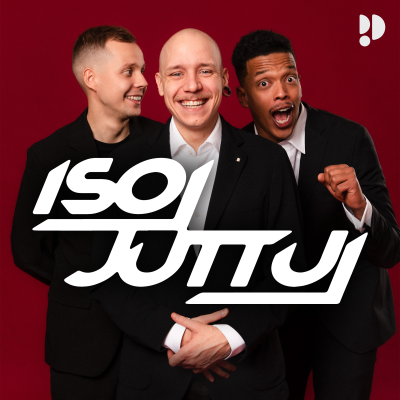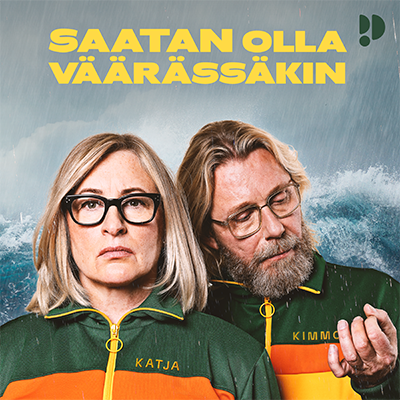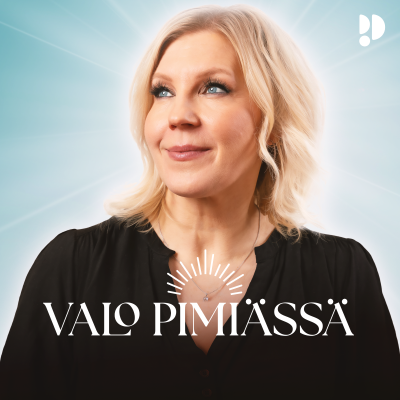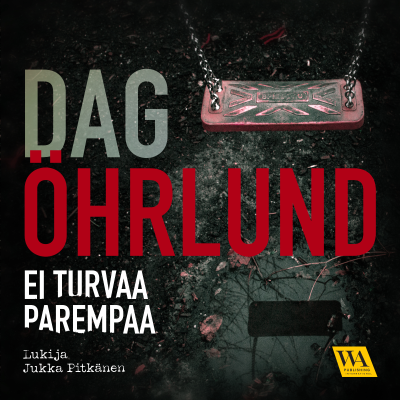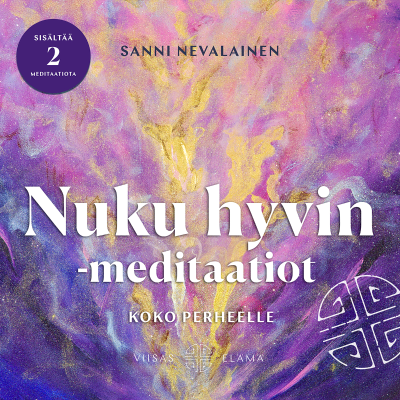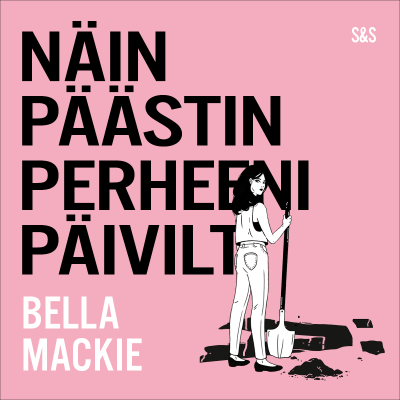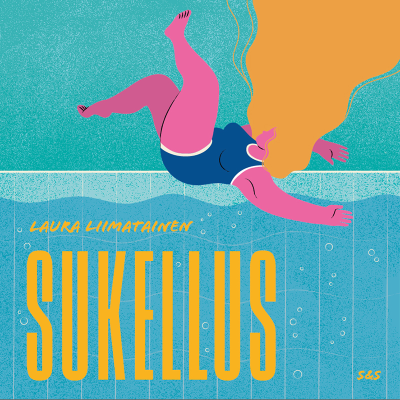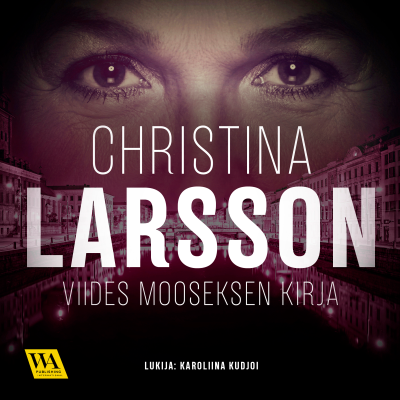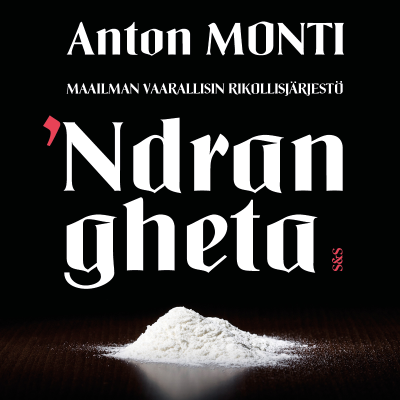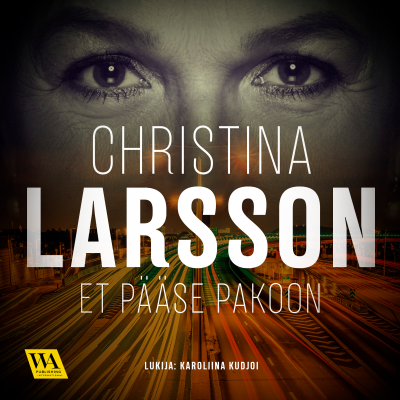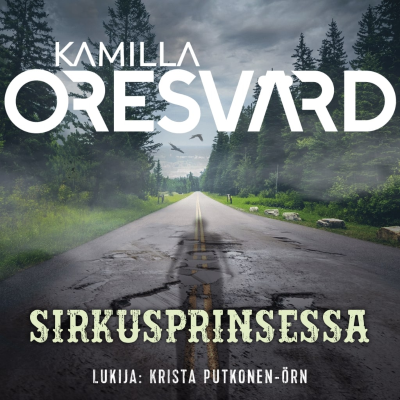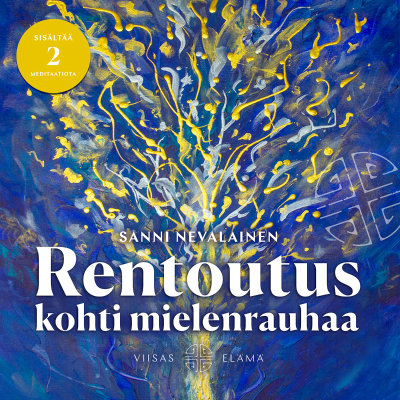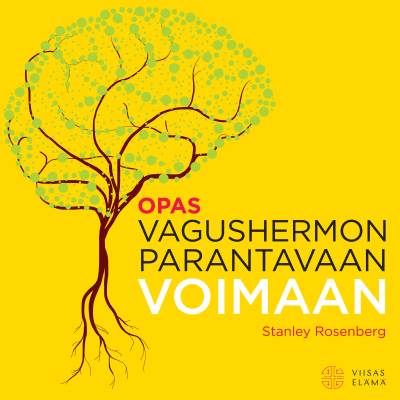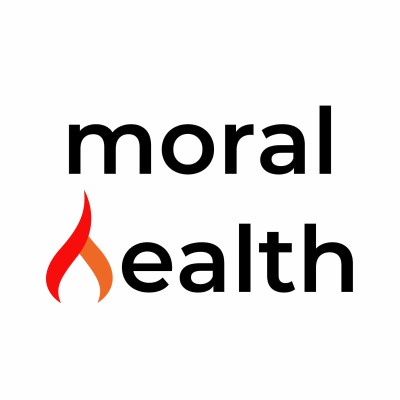
Moral Health
Podcast by Michelle Bernabe, RN
90 vrk ilmainen kokeilu
Kokeilun jälkeen 7,99 € / kuukausi.Peru milloin tahansa.
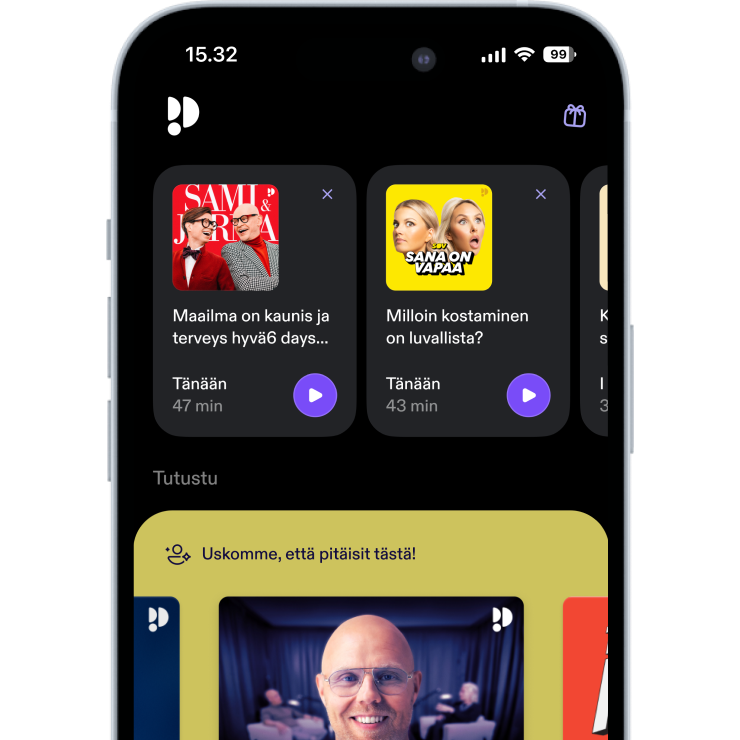
Enemmän kuin miljoona kuuntelijaa
Tulet rakastamaan Podimoa, etkä ole ainoa
Arvioitu 4.7 App Storessa
Lisää Moral Health
Being a human is messy and working in mental health is messier. Join me as I set out to create the new standard of mental health and share the stories that have shaped me along the way. moralhealth.substack.com
Kaikki jaksot
9 jaksotThe Sackler family [https://www.theguardian.com/commentisfree/2019/sep/17/opioids-crisis-sackler-family-purdue-pharma-deal] - a name that resonates through the chilling caverns of the opioid crisis, their legacy a symbol of the suffering that has descended upon countless lives. But in this bleak tableau, they inadvertently unveiled a critical paradigm we'd previously overlooked in healthcare: the role of pain as the fifth vital sign. Now, let's reclaim this revelation. Instead of quantifying the fifth vital sign as physical pain, let's assess something that the Sacklers seemed to have tragically mislaid: a moral compass. Welcome to an era where 'vital signs' take on a deeper, more profound significance. In this world, your encounter with healthcare takes on an entirely new dimension. Imagine, for a moment, stepping into the hushed tranquility of a clinical space. The routine melody of health checks ensues. Blood pressure - check. Pulse - check. Oxygen saturation, respiratory rate - check, check. But then, a shift in the cadence, an unexpected note. An exploration into your moral health. Embark on this thought experiment with me. Questions, not of physical wellness but of ethical vitality, begin to unfurl: "Do your daily actions echo the rhythm of your core values? Does your family life breed tranquility or unleash tempests? Do your social interactions ignite fulfillment or spark disquiet? Does the ethos of your workplace align with your moral compass or veer off course? In your interactions with nature, do you feel an exultant connection, indifference, or a pang of guilt? Are the decisions of your government, the laws and policies that orchestrate your life, harmonious with your beliefs or do they strike a dissonant chord?" This is not a rhetorical exercise; you're prompted to chart these facets on a scale from one to ten. Each number, a reflection of your moral equilibrium within the grand tapestry of life. Your moral health, thus, revealed not as an abstract notion, but as a tangible, measurable entity, ripe for introspection and growth. Could the way we make moral decisions, how we interpret and act upon what we perceive as right and wrong, be intrinsically linked to our health? This thought might appear to be hanging by a thread at first, but give it a chance, let it steep in your mind for a moment. The concept of 'moral injury [https://www.raconteur.net/talent-culture/will-moral-burnout-become-next-workplace-epidemic/]' might help tie these seemingly disparate domains together. To break it down, moral injury is the damage done to our conscience, our moral compass, when we commit, witness, or fail to prevent acts that transgress our deeply held moral beliefs. Now think about the unease, the restlessness that lingers when we go against our core values. We might try to numb it, drown it under indulgences - food, leisure, shopping, alcohol, or drugs. But in the quiet moments, it seeps out, a gnawing discomfort that refuses to be silenced. This isn't merely a philosophical musing. What if this moral discomfort, this nagging 'injury,' plays a significant role in our overall mental and physical health? A Lawyer's Struggle with Morality and Addiction With this backdrop, allow me to introduce you to Greg. A wonderful human I met while working at an ultra-high-net-worth rehab in New York City. He isn't just a man grappling with the complexity of life, but a soul wounded by the profound betrayal of his moral beliefs by a system he trusted. His personal tragedy paints a vivid picture of how societal corruption, and individual choices, infiltrate our being, deeply influencing our emotional, mental, and physical health. In the tranquility of the upmarket rehab, Greg and I found ourselves nestled on plush armchairs, splitting a tub of Ooey Gooey Butter Cake ice cream as the Statue of Liberty twinkled outside the panoramic windows. The ambiance of the room echoed a quiet yet luxurious solitude. "Greg," I said gently, "Would you feel comfortable sharing with me the point in your life where you felt alcohol started to take a greater hold over your life?" His spoon stilled mid-air, and for a moment, he was somewhere far away. Then, shaking his head as if to dislodge the troubling thoughts, he replied, "I suppose it started when I was a fresh-faced lawyer under Roy Cohn." "Cohn? The infamous Roy Cohn [https://smdp.com/2019/09/19/play-time-roy-cohn-master-manipulator/]?" I couldn't conceal my surprise. Greg merely nodded, the ghost of a smile playing on his lips. "Indeed, the notorious Roy Cohn. Words like ‘snake [https://www.washingtonpost.com/archive/lifestyle/1981/10/08/two-partisans-of-the-past-into-the-80s/3355fe68-fb04-4209-94bf-1e839dc4a03a/],’ ‘scoundrel [https://www.latimes.com/archives/la-xpm-1988-03-18-vw-1638-story.html]’ and ‘a new strain of son of a b***h [https://books.google.com/books?id=reUCAAAAMBAJ&pg=PA41&dq=zion+autobiography+of+roy+cohn+new+strain+of+son+of+a+b***h&hl=en&sa=X&ved=2ahUKEwjek_Pr19rkAhWVuZ4KHQTLDe8Q6AEwAHoECAEQAg#v=onepage&q=zion%20autobiography%20of%20roy%20cohn%20new%20strain%20of%20son%20of%20a%20bitch&f=false]’ barely do him justice. Law school, even the best one, doesn't prepare you for working with someone of that caliber," Greg said, pausing to draw a long, slow breath. "I was so young then, brimming with hope and dreams," he recalled, his gaze fixed on a past only he could see. "Ideals of justice and fairness, these were what fueled me. I remember the countless hours spent in the dead of night on each case, firmly believing that every word I penned, every argument I presented, could bring about a change." "Okay, so what went wrong? Weren’t you able to effect that change?" I asked, trying to trace the turning point in his narrative. "It’s bizarre," Greg replied with a humorless chuckle. "The scales of justice tipped at the most unexpected times. I'd party at Cohn's behest, show up to court unprepared with a hangover, and win. But when I'd stay in, bury myself in my work until the early morning hours, preparing diligently for the case ahead... that's when I'd lose. It was like a twisted joke that I couldn't comprehend." One night, fuelled by alcohol and frustration, Greg confronted Cohn. "I asked him, 'How can this be? Why am I winning when I shouldn’t, and losing when I’ve given it my all?'" "And what did he say?" I prompted. "He laughed," Greg's voice faltered, shaking off years of silenced torment. The room seemed to contract around us, the chill of his past filling the space, making the butter cake ice cream taste bitter. "It was a laugh I won't forget... Cold. Hollow. As though he was amused by my naivety. He leaned back, staring at me through half-lidded eyes. 'Greg,' he said, 'you've got it all wrong. It's never been about the well-crafted arguments or the compelling evidence. ' He had paused then, that smirk still playing on his lips, and I remember the dread that had started to build in my stomach. " 'It's about who has the wealth to buy the judge, to... tip the scales.' His words hung in the air, a veil of corruption revealing itself. 'It's all about who's got the judge snugly fitted into their pockets. You could lay out the best argument of your life and if it wasn’t us who bought the judge it wouldn’t matter.' He had stated it like a simple fact, an unspoken rule of the game that everyone knew but me." The weight of those words hung heavy in the air. The devastating blow to Greg's faith in the legal system, his vales crushed by the raw, corrupted reality, began the downward spiral. "I couldn’t cope," he confessed, his voice just a whisper, "My entire worldview was shattered. My whole identity was just wiped away. Where was the justice I had been working for? Where was the difference I was supposed to make in this world?" "I can only imagine how devastating that must have been," I responded, allowing the weight of his revelation to sink in. "Yes," he said, a tear tracing the line of his cheek, "The system I had trusted was corrupt. My hope was broken, and I felt so lost. I didn’t know how to make room for this reality in my body so I decided not to feel it and just to drink. It's not a justification, just the harsh truth." His words tumbled out, raw and unfiltered. He was a man well into his golden years, yet there he was, laid bare, tears pooling in his tired eyes. In that shared silence, I truly saw Greg. Not as a broken man but as a wounded spirit, his journey tainted by a deceitful system that betrayed his core principles. His disillusionment wasn't just a personal tragedy, but a stark reflection of how societal corruption can seep into our very marrow, eroding our physical, mental, and emotional health. Yet, through the veil of his vulnerability, I saw a stubborn flicker of resilience. It was buried deep, numbed over by years of self-medication, but it was undeniably there. The road to recovery was not just about detoxing his body, but about rehabilitating his faith in humanity, in justice. It would be a strenuous journey, riddled with confrontation of his painful past, but as long as he was honest in his pursuit, there was room for redemption. His journey underscored a profound truth - for healing to occur, it isn't enough to treat the body. We must address the moral injuries that our souls carry. Unfolding the Concept of Moral Health: Individual and Collective Impact So, what exactly are we referring to with this concept of 'Moral Health'? Allow me to elucidate: it's not about enforcing a universally accepted moral code or advocating for an elusive state of moral perfection. Instead, it's about acknowledging the significant influence our personal morals, community values, and the ethics of the systems we are part of exert on our physical and mental health. My experience in nursing has laid bare the intricate interplay between morality and health, and the devastating consequences when the moral compass goes astray. Our moral compass acts as a guide, leading us through life's labyrinth. When that compass is disrupted—when we, or our organizations or communities, lose our direction—it adversely affects our health. As people in positions of influence, our actions can ripple out, impacting the wellbeing of those around us. Conversely, when we live in harmony with our moral principles, our bodies and minds respond positively, fostering healing at a profound, holistic level. In healthcare, our primary focus often rests on physical and mental health, but the necessity to consider our patients' moral health is increasingly apparent. This might involve facilitating discussions about ethics, understanding their moral dilemmas, or even providing guidance to help them align their actions with their deeply held values—discussions as critical as those about blood pressure and heart rate. While I'm not suggesting we start prescribing morality, I am advocating for a recognition of its significant role in our overall health. As a nurse dedicated to healing, I believe it's essential to consider all facets of our patients' wellbeing, and that includes moral health. As we begin to attune our moral health, we'll inevitably start to see transformations within ourselves and in our relationships. When we're grounded in our moral principles and align our actions with our values, we foster a sense of integrity and coherence that radiates outward. This alignment could significantly alter the dynamics of our relationships, making them more authentic, nurturing, and interconnected, with undeniable effects on our physical health. Moreover, these transformations and ripples of moral alignment could resonate throughout our communities, organizations, and governments. As each one of us engages with our moral health, we collectively foster healthier, more morally responsive systems—systems where honesty is commonplace, compassion is the norm, and these values serve as the bedrock of our shared existence. So, as we delve deeper into the exploration of moral health, let's remember: it's not solely about individual transformation. It's about fostering healthier relationships, building morally aligned communities, and above all, recognizing our shared humanity in the process. Thank you, dear friends. But remember, don't just take my word for it; seek silence, listen to yourself. Michelle & Moral Health Reflect. Write. Transform: Narrative Medicine Take a closer look at the artwork below and allow the feelings it evokes to wash over you. What memories and stories does it bring to mind? Take three minutes to reflect and jot down your narrative. Whether you choose to express your thoughts in a journal or share them in the comments, the critical thing is that you take the time to consider the art and what it signifies to you. Reflect on a time when you sought refuge in excess—be it alcohol, food, or even exercise—as a means to escape the emotional impact of a moral decision made either by you or someone close to you. Thanks for reading Moral Health! Subscribe for free to receive new posts and support my work. This is a public episode. If you would like to discuss this with other subscribers or get access to bonus episodes, visit moralhealth.substack.com [https://moralhealth.substack.com?utm_medium=podcast&utm_campaign=CTA_1]
Dear Moral Health Readers, As a nurse, I've come to understand that comprehensive health—encompassing both physical and mental well-being—requires us to consider the broader picture. We must truly zoom out. If you've been following Moral Health’s work, you might be under the impression that it's solely about individual change—transform yourself to transform the world [https://open.substack.com/pub/moralhealth/p/transform-yourself-transform-healthcare?r=3g70l&utm_campaign=post&utm_medium=web]. Here, I'd like to add a layer of complexity to that narrative. The best things in life are often paradoxes. Our health isn't merely about us as individuals; it's equally about the complex network of external factors that shape our well-being. Everything is interconnected. And we, good scientists of life, [https://www.space.com/31933-quantum-entanglement-action-at-a-distance.html] know that. Today, we're going to delve into the symbiosis between healing and the world around us, drawing from the insights [https://atmos.earth/adrienne-maree-brown-and-prentis-hemphill-on-embodiment/] of adrienne maree brown. We'll also discuss what this means for us in terms of doing the right thing for our health. In a compelling metaphor [https://atmos.earth/adrienne-maree-brown-and-prentis-hemphill-on-embodiment/], adrienne maree brown gives us a great way to think about this - she compares healing to a river. She says, "Sturdy like something in motion that is also changing and that requires the balance of the world. The river can dry up if there’s not the balance of the world." This imagery not only highlights the delicate equilibrium between our individual healing processes and the collective harmony of the world we inhabit, but also underscores the need for active engagement in the pursuit of not only taking ourselves to the doctor but also the world. "Sturdy like something in motion that is also changing and that requires the balance of the world. The river can dry up if there’s not the balance of the world." Our health is influenced by a complex web of factors, from societal challenges and environmental stressors to interpersonal relationships and power imbalances in the world of business. Take, for example, the Bayer-Monsanto merger [https://www.npr.org/sections/thetwo-way/2018/06/04/616772911/monsanto-no-more-agri-chemical-giants-name-dropped-in-bayer-acquisition], which points to a troubling connection between environmental toxins and the very medicines designed to treat the illnesses they cause. In a world where businesses profit from both the problem and the solution, the cycle of harm continues. So, where does the opportunity to heal lie? Deep-rooted issues, such as harmful power dynamics, systemic discrimination, and climate change, significantly impact our well-being. Harmful power dynamics in relationships, schools or workplaces can lead to various mental health conditions, including depression, isolation, anxiety, and post-traumatic stress disorder (PTSD), according to the American Psychological Association. Systemic discrimination, as per a study by Williams and Mohammed (2013), has been linked to a range of health outcomes, including heart disease and mental health disorders like depression and anxiety, due to the chronic stress of enduring regularity of discrimination. Lastly, climate change, according to the World Health Organization, is predicted to cause approximately 250,000 extra deaths annually between 2030 and 2050 due to factors like heat stress and malnutrition. And these are merely the most overt examples. It's time we cast a critical eye on the system we're immersed in. We must pose some challenging questions - can our communities truly find healing while ensnared in a matrix of systems that perpetually foster injustice and imbalance? Is it pragmatic to believe that the path to genuine health lies solely in the hands of our primary care doctors and therapists? This is a pertinent question, especially when some of our relationships and business practices seem to prioritize profit and harm, knowingly or not. This misalignment incites more disharmony externally and internally rather than cultivating equity, healing, and balance. However, let's not mistake this as a dismissal of the role of healthcare professionals. On the contrary, their expertise is indispensable. But the point I wish to highlight here is that health extends beyond the clinical realm. It is also fundamentally a social issue, embedded in the complex interplay of environmental, economic, and sociopolitical factors. This perspective invites us to reconceptualize health and healing as something more holistic and systemic, rather than purely individualistic. It challenges us to confront the systems that perpetuate harm and discord, and to consider how we can shift our ways of being towards nurturing equity, healing, and balance. Can we imagine a world where our collective well-being is as much a measure of societal success as economic growth? By aligning our health with our values, we can work towards this ideal and cultivate a society where true health is not just a possibility, but a reality for all. As adrienne maree brown insightfully points out [https://atmos.earth/adrienne-maree-brown-and-prentis-hemphill-on-embodiment/], "Sometimes the best way I can be with my community, or with someone who’s on a healing journey, or with my own healing journey is to actually return my attention to the larger balance of the circumstances that we’re in." We must challenge ourselves with this question: are we concentrating on too narrow a problem set within healthcare? Are we simply treating the symptoms of health and mental health issues, while ignoring the systemic factors contributing to them? Could it be possible that we're searching for answers in the wrong test? Are we inadvertently aiding an environment that's drying up the river of healing by not adequately addressing systemic human and planetary injustices and imbalances? It's not merely about survival in this current system—it's about reshaping it, redefining it, and reorienting it towards the health and healing we all fundamentally deserve. "Sometimes the best way I can be with my community, or with someone who’s on a healing journey, or with my own healing journey is to actually return my attention to the larger balance of the circumstances that we’re in." If you are an organization or individual genuinely dedicated to promoting well-being and impact-driven solutions, or if you are a health organization, I encourage you to thoughtfully navigate the complex landscape of interconnected healing. In pursuit of truly transformative solutions, consider incorporating these key elements: * Curiosity and Connection Mindset: Invest the necessary time to educate yourself and others about the far-reaching implications of health and mental health. Recognize the truth that individual health does not exist in a vacuum but is intricately interwoven with societal, environmental, and economic systems. We must comprehend that our actions today have a direct bearing on the health of future generations, and that our health is a reflection of the health of our communities and our planet. * Active Engagement in Works of Justice: We cannot afford to remain passive or indifferent to the profound impact our existing systems have on us. It transcends being merely a societal concern - it's a health crisis that permeates through each of us. We must actively partake in the pursuit of justice, recognizing that our collective health and healing hinge on dismantling systems that are not grounded in human dignity, equity, and compassion. * Address Harmful Power Dynamics: Power dynamics can be uprooted through fostering a culture where grassroots thoughts are amplified, ensuring voices from all walks of life are heard and valued. This approach pivots towards a wisdom exchange that is bidirectional, disrupting the traditional top-down flow of knowledge. It's a move towards a more empathetic and respectful culture that honors all points of views and holistically nurtures mental health and well-being. It's a future where no voice is insignificant, no idea is too small, and every human being has the power to inspire change. * Enviromental Consciousness: Understanding the health impacts of the environment is crucial. Exposure to toxins, polluted air, and extreme weather, exacerbated by climate change, can lead to a variety of conditions including inflammation, cancers, respiratory and cardiovascular diseases, as well as mental health stressors, among others. Advocating for health-protective environmental policies and supporting sustainable solution organizations is imperative. Individual actions to reduce one's carbon footprint, like using renewable energy and waste reduction, can significantly minimize personal health risks. Such eco-friendly habits not only preserve the planet but also enhance physical and mental health, illustrating the vital symbiosis between environmental consciousness and health. * Self-Reflection and Mindful Action: Engaging in self-reflection and mindful action indeed fosters personal insight and accountability, vital for both individual health and the well-being of our interconnected world. This introspective journey illuminates our innate interconnectedness with the world, underlining how our actions inadvertently influence the broader ecosystem. Uncovering this interplay can awaken a deep sense of responsibility to not cause harm, to ourselves or the world. It's a profound realization that when we are truly connected to ourselves and cognizant of our place within the global community, causing harm seems incongruous with our nature. Instead, we naturally gravitate towards actions that promote health and harmony. This shift is more than personal growth; it's a ripple effect that can transform societal norms and inspire collective healing. The power of self-reflection and mindful action, therefore, extends beyond individual health, sparking a chain reaction of positive change in our intertwined world. The river of healing might appear to be drying up in certain places, but as long as we continue to support each other, hold ourselves accountable, and truly understand the interconnectedness of our experiences, we can replenish it with the life-affirming waters of empathy, understanding, and growth. Thank you, dear friends. But remember, don't just take my word for it; seek silence, hear yourself. With warmth and hope, Moral Health Reflect. Write. Transform: Narrative Medicine Meets AI Prepare to embark on a contemplative journey as we explore the world of Narrative Medicine and AI-generated art. Take a closer look at the artwork below and allow the feelings it evokes to wash over you. What memories and stories does it bring to mind? Take three minutes to reflect and jot down your narrative. Whether you choose to express your thoughts in a journal or share them in the comments, the critical thing is that you take the time to consider the art and what it signifies to you. Prompt: Recall a time when you felt a deep connection to the world around you, whether it was admiring the beauty of nature or feeling a sense of community with those around you. Thanks for reading Moral Health! Subscribe for free to receive new posts and support my work. This is a public episode. If you would like to discuss this with other subscribers or get access to bonus episodes, visit moralhealth.substack.com [https://moralhealth.substack.com?utm_medium=podcast&utm_campaign=CTA_1]
As I eagerly first stepped into the bowels of the New York City Hospital [https://www.nytimes.com/2023/01/25/podcasts/the-daily/nonprofit-hospitals-investigation.html], a disquieting dissonance washed over me. This city, so known for its ceaseless dance of lights and unabashed extravagance, seemed a world away from the hospital's dimly lit corridors and the stifling air of abandonment that pervaded its halls. How could a place so vital to the health of a city so vibrant be so disheartening and forlorn? The staff, visibly strained from overwork and underappreciation, teetered on the edge of breaking. The equipment surrounding us seemed like relics of a bygone era, desperately in need of modernization. And to make matters worse, there were never enough supplies to meet the demand. The scene unfolding before me was a tragic comedy, where laughter served as a coping mechanism to grapple with the harsh realities. [https://www.cnn.com/videos/health/2020/03/26/new-york-city-nurses-wear-garbage-bags-camerota-intv-newday-vpx.cnn] My debut as a psychiatric emergency room nurse catapulted me into a world of intensity and chaos—a place where each decision held the power to sway the delicate balance of life and death. Virginia, one of my enigmatic mentors, seemed to saunter through the hospital's chaos with a grace that commanded respect and admiration. There was something in the way she navigated the storm, a poise and determination, that set her apart. Virginia and I were as different as night and day. I was a hopeful novice, green and eager, while she was a seasoned realist on the cusp of retirement, her hair streaked with gray and her face lined with wisdom. Our contrasting dispositions often led to clashes, but her candid demeanor helped me develop a deeper understanding of life. Virginia's sharp wit and unrelenting honesty were an enthralling mix, and though her words could sting, I found myself drawn to her unvarnished truth. One day, she led me out of the depressing confines of the hospital and into the gritty embrace of the city streets. It felt as if I'd stepped right into the heart of a raw, unfiltered New York City film. Leaning against the cold brick of the emergency entrance, Virginia stood as a pillar of unwavering strength, her face etched with the fierce determination that I would come to know as her signature. With a casual air, Virginia pulled a cigarette from her pocket and lit it. She drew in a deep breath, and as she exhaled, tendrils of smoke swirled in the crisp air. I glanced around nervously, half-expecting a stern supervisor to materialize and chastise us, but Virginia seemed unconcerned with potential consequences. She was a vision of unyielding defiance, radiating an indomitable sense of self-assurance. "What about the hospital's no-smoking policy?" I ventured cautiously. Virginia rolled her eyes, releasing a plume of smoke. "Oh, honey, breaking the rules is what makes life worth living," she said with a dark chuckle. "Besides, we all gotta die of something, right?" Watching her smoke with such audacity, I grasped that Virginia represented more than just a mentor to me. She embodied the grit and tenacity needed to not only endure but thrive in a harsh and unforgiving system. I couldn't help but wonder if I had what it took to survive. Gathering my courage, I asked Virginia for her honest opinion of me. She flashed a wry smile and took a puff of her cigarette before responding, "You, my dear, are a clay pigeon - just waiting to be shot." Her words served as a sobering warning, but at the time, I was too young and inexperienced to fully grasp my vulnerabilities within such a massively misaligned system. So I laughed it off instead. In the first month of shadowing Virginia in the psychiatric emergency room, I was plunged into adventure and turmoil, a bizarre fever dream that seemed to defy reality. To compound the already bewildering bedlam, Virginia – a steadfast conservative with a penchant for debate – took delight in goading me, as if it were a sport. One incident, in particular, remains etched in my memory. With a devilish grin, Virginia shared how she used to release patients from the psych ER directly to Zuccotti Park, during the Occupy Wall Street encampment [https://money.cnn.com/2011/10/06/technology/occupy_wall_street/index.htm?iid=EL], guiding them toward free resources such as food, water, and socks. Astonished, I asked, "Are you suggesting that you would encourage people who were recently discharged from a psychiatric emergency room to join a protest camp?" Virginia nonchalantly shrugged. "What better place for them to find support and community? These individuals are already feeling ostracized and disempowered. At least there, they can be part of something bigger." I was taken aback. The notion of releasing vulnerable patients struggling with mental illness into the pandemonium of a protest camp struck me as reckless at best, perilous at worst. "You are absolutely insa—”. I caught myself and rephrased. “Doing that was completely inappropriate and dangerous," I exclaimed. A spark of mischief in her eye, Virginia countered, "Dangerous, you say? You know what's truly dangerous? The status quo. How many times have we seen patients with mental illness being released from the hospital with zero follow-up care? How many times have we seen them return to the hospital because they didn't receive the support they needed in the community? The belief that we can persist in our ways and expect different results. That, my dear, is the epitome of a dangerous insanity." She leaned in, her voice animated. "At least my discharge plan involved clothing, food, and a sense of community. What does your plan offer these vulnerable souls? A relentless cycle of forced hospitalization in locked facilities, stripping them of their autonomy and freedom?" Her words struck me like a gut punch, catapulting me into a maelstrom of clashing emotions. I wrestled with both the inner turmoil born from admiring Virginia's unwavering conviction and iconoclasm while feeling a gnawing upset about her unorthodox and inappropriate methods. As the dissonance grew, I began to recognize that her audacious decision to send patients to the Occupy Wall Street encampment – though deeply disconcerting – painted a vivid picture of the systemic inadequacy we were facing. The fact that such a radical alternative could be considered by a compassionate and veteran nurse only served to emphasize the pressing need for change in a system that consistently fails those it is meant to protect. How could it be that I had just earned my degree from a prestigious New York university, only to find myself blindsided by the intricate complexities of a hospital just a stone's throw away? One of the nation's finest, no less. The chaos and turmoil that had swallowed me whole upon entering the psychiatric emergency room, the bewildering fever dream that had initially left me reeling, now appeared as a glaring reflection of the broken system I had unwittingly become a part of – a system I would be compelled to navigate and decipher, whether I was ready for it or not. Reflect. Write. Transform: Narrative Medicine Meets AI Prepare to embark on a contemplative journey as we explore the world of Narrative Medicine and AI-generated art. Take a closer look at the artwork below and allow the feelings it evokes to wash over you. What memories and thoughts does it bring to mind? Take three minutes to reflect and jot down your narrative. Whether you choose to express your thoughts in a journal or share them in the comments, the critical thing is that you take the time to consider the art and what it signifies to you. Prompt: Describe a time when you encountered an unexpected teacher in your life. What was the circumstance and how did this person impact your learning or personal growth? I always love to read your reflections below! Thanks for stopping by, friends. Whether you are a reader or a writer, don’t forget our Moral Health disclaimer [https://open.substack.com/pub/moralhealth/p/the-disclaimer-a-restorative-approach?r=3g70l&utm_campaign=post&utm_medium=web]! Thanks for reading Moral Health! Subscribe for free to receive new posts and support my work. This is a public episode. If you would like to discuss this with other subscribers or get access to bonus episodes, visit moralhealth.substack.com [https://moralhealth.substack.com?utm_medium=podcast&utm_campaign=CTA_1]
Greetings, friends! Welcome back to Moral Health, a substack dedicated to inspiring reflection, fostering transformative insights, and uniting a community of individuals who are passionate about personal growth and moral progress. Together, we'll explore the intriguing realms of reparative memoirs, narrative medicine, and moral leadership, all while spotlighting the fascinating and often wild world of healthcare. In today's post, we provide a housekeeping update by revisiting the core principles that govern this Substack, along with presenting a necessary disclaimer! Foundations Rewind: Setting Intentions, Embracing Accountability, and Healing Together Let's begin by revisiting the core principles that we’ve built thus far: The Smoke Signal: Building a Community of Growth [https://open.substack.com/pub/moralhealth/p/introducing-moral-health-a-smoke?r=3g70l&utm_campaign=post&utm_medium=web]- We openly share our values and aspirations in order to attract kindred spirits, creating a tight-knit, supportive community of remarkable individuals eager to grow together. Beyond Cancel Culture: Accountability Embraced [https://open.substack.com/pub/moralhealth/p/beyond-cancel-culture-embracing-a?r=3g70l&utm_campaign=post&utm_medium=web]- We foster an environment that transcends cancel culture by valuing accountability, embracing a reparative mindset that encourages growth, understanding, and compassion for one another. Healing and Evolving Together: A Journey of Equals [https://moralhealth.substack.com/p/transform-yourself-transform-healthcare] - As we embark on this journey, we recognize that each of us is here to heal and evolve, learning and growing with each step we take. Narrative Medicine and Reparative Memoirs: Illuminating Characters, Stories, and Catalysts for Personal Growth As we move forward with Narrative Medicine, we will introduce reparative memoirs that illuminate a vibrant array of characters and stories from both my own and others' experiences. These memoirs will serve as catalysts for personal reflection and growth, interpersonal repair, and systems change, helping us contemplate and process the complexities and challenges present in the realm of healthcare (and beyond!). The Disclaimer: A Restorative Twist on the Usual Memoir Disclaimer At Moral Health, we take a unique approach to writing that blends personal experiences, and restorative justice principles. Occasionally we will use narrative stories as a means to promote reflection and foster change. Throughout this narrative medicine journey, we'll share a series of "moments" that represent composite scenarios of people, challenges, and situations encountered within the healthcare system. To protect privacy and promote restoration, all names and identifying characteristics have been altered, and some events and dialogues have been condensed or recreated. Our goal is to use these composite scenarios to spark reflection and discussion around systemic issues within healthcare, with the aim of driving restorative and transformative change. It's important to understand that while these moments may feel familiar, they do not depict any specific individuals. Rather, they represent composites of people and experiences that we can all learn and grow from. The opinions expressed by the authors in this Substack represent their own personal reflections. Kindly note that these thoughts are solely attributed to the authors listed with each post and do not reflect the positions of their employers or colleagues. Embarking on the Transformative Journey Together Now that we’ve gotten our housekeeping out of the way, I'm thrilled to embark on this journey with you as we explore the reparative memoir genre and our unique approach to narrative medicine and moral leadership. We'll confront uncomfortable truths, meet intriguing and, at times, uncomfortable characters, and challenge ourselves to become better individuals and community members. So, let's dive in together and begin our transformational journey. Thank you for being an essential part of the Moral Health community. We couldn’t do it without you. In solidarity, Michelle and Moral Health Reflect. Write. Transform: Narrative Medicine Meets AI Prepare to embark on a contemplative journey as we explore the world of Narrative Medicine and AI-generated art. Take a closer look at the artwork below and allow the feelings it evokes to wash over you. What memories and thoughts does it bring to mind? Take three minutes to reflect and jot down your narrative. Whether you choose to express your thoughts in a journal or share them in the comments, the critical thing is that you take the time to consider the art and what it signifies to you. Prompt: Write a story about a time when you faced a conflict between achieving personal success and making a positive impact. Thanks for reading Moral Health! Subscribe for free to receive new posts and support my work. This is a public episode. If you would like to discuss this with other subscribers or get access to bonus episodes, visit moralhealth.substack.com [https://moralhealth.substack.com?utm_medium=podcast&utm_campaign=CTA_1]
Hello Moral Health friends! As we continue our journey toward building the foundational components for Moral Health, calling in community [https://moralhealth.substack.com/p/introducing-moral-health-a-smoke], and adopting a restorative mindset [https://moralhealth.substack.com/p/beyond-cancel-culture-embracing-a], we now turn our focus toward ourselves. Our next community cornerstone honors the wisdom of the late Grace Lee Boggs, a trailblazing activist and philosopher. Her mantra, "Transform yourself, transform the world," challenges us to examine our personal lives, jobs, and relationships as the frontlines for cultivating new systems. As we strive to improve healthcare, it's important to consider whether positive change can occur without individuals within the system committing to personal growth, healing, and introspection. While change is inevitable, it's crucial to ask if it can be directed towards progress without inward focus. This is where the concept of Moral Health becomes crucial as a catalyst for driving substantive change. Healing and Evolving Together: A Journey of Equals One thing that should be made clear from the outset is that everyone at Moral Health, myself included, is joining you on this journey as equals, not from a position of moral superiority. We're all in this together, learning and growing with each step we take. In the spirit of "the healthy don't need a doctor," despite healthcare being full of them, we acknowledge that we are all here to heal and evolve. Boundless humility, unwavering accountability, and insatiable curiosity define the essence of our shared pursuit. Embracing the Unfolding Healthcare Revolution: Could Facing Your Demons Unlock the Future of Healthcare? A recent PwC survey [https://www.pwc.com/gx/en/issues/c-suite-insights/ceo-survey-2023.html]of 2,000 CEOs revealed that 40% believe their companies will cease to exist within a decade, and nearly 60% feel they should invest more time in transformation. Healthcare, as an integral component of this landscape, confronts a seismic shift that presents a multitude of challenges. To successfully navigate this transformation, we—healthcare professionals, patients, and administrators—must be adaptable, innovative, and courageous. Dave Chase, a healthcare visionary, recently underscored the necessity for resilience and resourcefulness amidst the "Innovator's Dilemma." [https://www.linkedin.com/posts/chasedave_healthcare-activity-7042171631573630976-SHn_?utm_source=share&utm_medium=member_desktop] We are called upon to embrace new ways of thinking and develop groundbreaking solutions to the challenges we face. Building on Dave's insights, could it be that we have missed a vital element in our quest to revolutionize healthcare? What if an additional component to transformation lies in prioritizing our personal healing? By bravely confronting and resolving our inner traumas, biases, and struggles, we become clearer and more creative effortlessly. I contend that leaders and business builders who take an integrated mind-body approach with themselves can be more effective in establishing an adaptable healthcare system that values and respects the worth and dignity of every individual. This is because they have learned to do the work on themselves first, enabling them to build systems that reflect their inner empathy, authenticity, and compassion for the people they serve. Although this trauma-informed leadership approach is often overlooked, I am convinced that it can play a critical role in addressing the many challenges facing healthcare today. When people carry unresolved pain, they not only inflict harm on others but also contribute to perpetuating dysfunctional systems. The healthcare industry, worth trillions of dollars, [https://www.cms.gov/research-statistics-data-and-systems/statistics-trends-and-reports/nationalhealthexpenddata/nhe-fact-sheet] is a lucrative space that rewards even the most unskilled and unfeeling among us. However, if we truly yearn to go beyond profiting off the pain of others and create a healthcare system that is truly transformative, then we must make self-healing a top priority. Neglecting to acknowledge and address our own wounds and traumas will only serve to uphold an unjust and dysfunctional system. Are we willing to acknowledge the role our own personal growth and healing can play in creating a more equitable and just healthcare system? Can we dare to question how our own transformation can be the catalyst for uprooting a colossal "too big to fail" system [https://twitter.com/healthcareandy/status/1638298034466349057?s=20]? The key lies in understanding that broken individuals create and maintain broken systems [https://twitter.com/halletecco/status/1640113339324944385?s=20]. This cycle persists as the pain of one is unconsciously transmitted to others, and the broken system itself only serves to reinforce this suffering. To truly break free from this pattern and foster genuine healthcare transformation, we need to muster the courage to confront our own brokenness and harms and address them, healing one at a time. Having fun with chaos theory. Chaos theory highlights the "butterfly effect," implying that even the smallest actions can yield significant and far-reaching impacts in complex systems. Recognizing that all individuals carry some form of trauma, and that no one possesses a perfect set of circumstances, those who have not embarked on the journey of healing inadvertently make small daily choices and decisions that perpetuate this cycle of dysfunction on others and within the system. On the other hand, I believe that by pursuing a path of self-healing and growth, we can contribute to rectifying these systems. Just as the subtle flutter of a butterfly's wings can set off a chain of events culminating in a distant tornado, our personal healing journeys are crucial in reshaping healthcare. A collective shift in how we manage our personal well-being is essential if we aspire to create systems that genuinely care for others. The process of healing begins with simple measures: learning to acknowledge and sit with our emotions, nurturing self-compassion, taking accountability for our actions, and embracing and offering forgiveness. As we achieve inner balance, we disengage from harmful patterns, establish boundaries with individuals and systems that evade accountability, and move towards people and systems that conscientiously strive to be sources of authentic healing. Through our individual healing and growth, we transform into healthier people, eager to construct and participate in healthier systems. Our personal development catalyzes a ripple effect, inspiring others to embark on their own healing journeys. This marks the tipping point for a profound evolution in healthcare. Let us carry with us the wisdom of Grace Lee Boggs and remember that true transformation starts within ourselves and radiates outwards to the world. By turning inward with grace and determination, we can co-create a future where every individual has the opportunity to be healthy and free. In solidarity, Michelle and Moral Health Reflect. Write. Transform: Narrative Medicine Meets AI Prepare to embark on a contemplative journey as we explore the world of Narrative Medicine and AI-generated art. Take a closer look at the artwork below and allow the feelings it evokes to wash over you. What memories and thoughts does it bring to mind? Select a prompt and take three minutes to reflect and jot down your narrative. Whether you choose to express your thoughts in a journal or share them in the comments, the critical thing is that you take the time to consider the art and what it signifies to you. AI Art #1 Prompt #1: Describe a moment when you realized that healing is not a linear process and how that understanding has impacted your journey. AI Art #2 Prompt #2: Share a personal story about how your unhealed wounds or biases led to a difficult interaction with someone else, and how you overcame the situation through self-reflection, awareness, and personal growth. Prompt #3 Prompt #3: Share a personal story of a time when you discovered the need to prioritize your personal healing journey and began to explore and embrace the different parts of yourself that you may have previously ignored or suppressed. Thanks for stopping by! As you reflect and write, consider sharing your thoughts with a loved one, or a colleague, or posting them below. Here are three ways to get involved with Moral Health: * Read and engage with our content by subscribing to our substack. * Reflect and grow with our narrative medicine prompts, either in your personal journal or by sharing in the comments section below. * Submit your story or artwork [http://www.moral.health/] to be featured on the substack and inspire others and be part of shaping a better healthcare future for all. This is a public episode. If you would like to discuss this with other subscribers or get access to bonus episodes, visit moralhealth.substack.com [https://moralhealth.substack.com?utm_medium=podcast&utm_campaign=CTA_1]

Arvioitu 4.7 App Storessa
90 vrk ilmainen kokeilu
Kokeilun jälkeen 7,99 € / kuukausi.Peru milloin tahansa.
Podimon podcastit
Mainoksista vapaa
Maksuttomat podcastit



